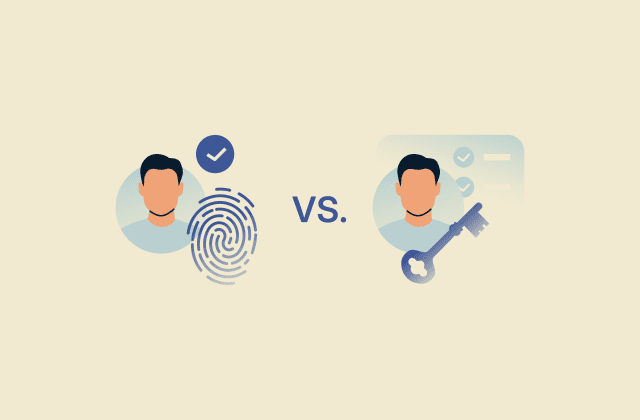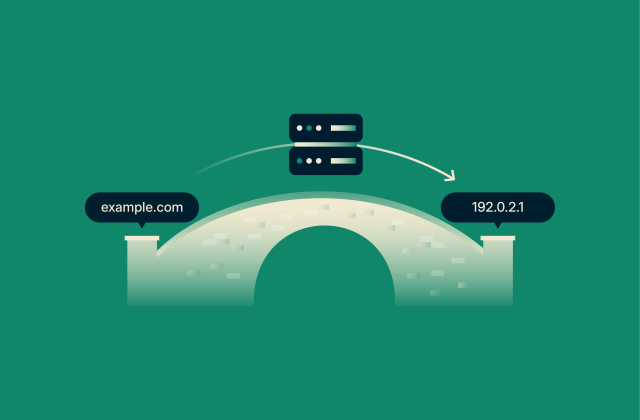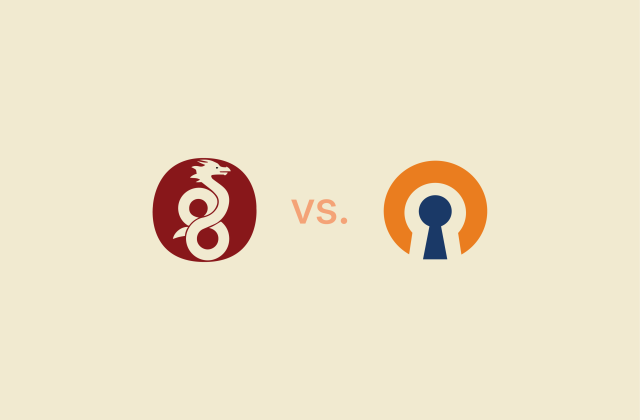Tax identity theft: How it happens, how to spot it, and how to prevent it

Tax identity theft happens when criminals steal your tax information to file fraudulent returns or to do paid work that gets reported under your name. This type of identity fraud can lead to losing government benefits, being asked to pay more tax than you owe, and more.
This guide explains what tax identity theft is, how it happens, the warning signs to look out for, and how to prevent it from happening. It also explains what you should do if you fall victim to this kind of identity fraud.
Please note: This information is for general educational purposes and does not constitute financial or legal advice.
What is tax identity theft, and why is it important?
Tax identity theft occurs when scammers obtain sensitive personal information, such as your Social Security number (SSN), which they use to file fraudulent tax returns. These scammers may overstate your deductions or understate your income to maximize the fraudulent tax benefits they can receive in your name.
Tax identity theft can also happen when an identity thief works for an employer while using your SSN. That way, their income gets reported to the Internal Revenue Service (IRS) in your name, resulting in a higher tax burden or even notices for unpaid taxes.
Any case of tax identity theft is serious, with consequences including:
- Losing tax benefits that you’re legitimately entitled to
- Being left unable to file legitimate tax returns
- Being asked to pay extra taxes on income that you didn’t earn
- A long process to resolve the issue (potentially more than a tax year)
- Your stolen personal information being used in other types of identity theft
Warning signs you may be a victim of tax identity theft

When you observe one or more of the signs below, it’s usually an indicator that an identity thief may be filing taxes or reporting income in your name.
Suspicious or duplicate tax returns
Most people only find out that they’ve been a victim of tax identity theft when the IRS contacts them regarding suspicious activity on their tax account, such as:
- Overstated deductions
- Understated income
- Unreasonable claims (such as unemployment benefits)
- Conflicting personal information (such as an SSN discrepancy)
In some cases, you may send in your legitimate tax filing, only to have it rejected by the IRS as a duplicate filing since an identity thief already filed a fraudulent return in your name.
Tax notices for accounts you didn’t open
If you receive an IRS notice that you didn’t request, such as one confirming the creation of an online account, it could mean someone tried to set up access in your name. Any unexpected IRS correspondence should be treated seriously and verified directly with the IRS.
Unsolicited tax transcripts
The IRS generally doesn’t send tax transcripts unless requested. If you receive a tax transcript you didn’t request, it may mean someone is trying to learn more about your tax profile using information they’ve already stolen.
Fortunately, the IRS now redacts sensitive information such as your SSN, Tax Identification Number (TIN), and name. Even so, the scammer may already have too much of your data, given that requesting the transcript requires that they know your address, full name, and details like your SSN or TIN.
Refund status changes
Your refund status may be put on hold if the IRS suspects tax return fraud due to identity theft. Identity thieves may also divert your refund so it never reaches you, even if the IRS shows it as issued.
New employer or EIN records you don’t recognize
If your Social Security statements or tax transcripts show strange Employer Identification Numbers (EIN, for businesses) or listed employers, someone else might be using your SSN for employment purposes. This is sometimes called employment-related identity theft, where wages earned by someone else are reported under your SSN.
Additional taxes owed for income you didn’t earn
The IRS may contact you to ask you to pay additional taxes. This may legitimately happen if you made a mistake while filing your tax returns, but it may also be that an identity thief has been working using your SSN.
Why is my tax return saying identity theft?
You may get tax-related notices from the IRS mentioning identity theft if there’s suspicion that you’ve been targeted by an identity thief. Depending on the specific letter you get, the IRS will also notify you of how to verify your identity.
| Letter | Verification model |
| 5071C | Online |
| 4883C | Toll-free number |
| 5747C | In-person |
What to do if you’re a victim of tax identity theft
You may feel isolated and frustrated when you find out you’ve been a victim of tax identity theft. However, it’s important to act fast and take back some control by following the strategies below.
Report identity theft to the IRS
If you’re a U.S. taxpayer, the first thing to do is report the tax identity theft incident to the IRS. This can happen in two ways, depending on whether the IRS notified you about the identity theft first or you’re notifying them first:
- Respond to IRS notices: If the IRS suspects suspicious tax returns, you’ll get letters 5071C, 4883C, or 5747C. Respond to these notices accordingly, as they come with relevant instructions.
- Fill IRS Form 14039 (Identity Theft Affidavit): If you noticed the identity theft first, file a completed copy of the IRS Form 14039.
You can also call the IRS at 800-908-4490 for identity theft-related assistance. This helpline also works if you think you may be a victim but haven’t been affected yet, such as after losing your wallet.
In addition, you should report the theft to your state’s tax agency and file an identity theft report with the Federal Trade Commission (FTC) via IdentityTheft.gov. The FTC report will come in handy when contesting charges or closing accounts fraudulently opened in your name.
Freeze your credit and monitor financial accounts
Contact the three major credit bureaus (Equifax, Experian, and TransUnion) to freeze your credit. Once you’ve activated a credit freeze, new creditors and lenders will be unable to access your credit report, so they won’t extend the identity thief any new lines of credit, approve new loans in your name, or open new accounts you didn’t authorize.
Note that this doesn’t affect your current creditors. However, you’ll have to unfreeze your credit whenever you need to make new, legitimate credit applications.
Close fraudulent accounts and secure online logins
Start by closing fraudulent tax accounts opened in your name. You can contact the IRS (800-908-4490) to get the best advice on how to do this.
Then, request your credit reports from all three credit bureaus and look through to ensure the scammer hasn’t opened new credit accounts (such as loans and credit cards) using your personally identifying information.
If they have, close these accounts and contact the associated creditors to let them know you’ve been the victim of identity theft. Secure other legitimate accounts that you won’t be closing with a strong password and two-factor authentication (2FA).
Contact local law enforcement
While not always required, reporting to local law enforcement can be an important step:
- You may receive official documentation that can help show creditors, lenders, and financial institutions that you’ve been a victim of identity theft.
- It may help you address legal complications that could arise from identity theft (such as in cases of criminal identity theft).
- You’ll be helping your local police investigate and apprehend the identity thief if they’re local.
When making a report, gather as much evidence as you can. Once you’ve filed the report, request a copy for your records.
How to protect yourself from tax identity theft
You can protect yourself against identity theft and prevent scammers from filing fraudulent returns with your personally identifying information. If you’ve already been a victim, the tips below can help you prevent a repeat incident.

File your taxes early
The IRS will usually process the first tax return it receives and reject others it gets in the same tax season as duplicates. Filing your tax return early can reduce the risk that identity thieves submit one first.
That way, they don’t get your benefits, and a duplicate tax filing notification will alert you to any tax information leak before the next tax season.
Obtain an Identity Protection PIN (IP PIN)
An IRS IP PIN is a unique 6-digit number designed to prevent unauthorized tax return filings on your account, much like multi-factor authentication.
The IP PIN can be issued by the IRS on request or received by default if you’re a confirmed victim of tax identity theft. Once you have it, the IRS won’t process any tax returns you file without the PIN.
Remember to never reveal the PIN to anyone, except a trusted tax preparer (if you use one). Likewise, the IRS doesn’t ask for your IP PIN (either via calls or other modes of communication), not even as a form of identity. Instead, it’s only required that you include the IP PIN on any tax application before submitting it.
Safeguard your Social Security number
Here are some ways to keep your SSN safe:
- Don’t use your SSN as a primary piece of identification.
- Don’t carry your Social Security card with you unless you really need to. It’s better to memorize the number and never carry the card at all.
- Never speak your SSN aloud in a public place.
- Never enter your SSN on a public computer or a personal device in a public place. Shoulder-surfers (scammers watching you enter sensitive information on your computer or phone) may be around.
- Never give out your SSN on a phone call. Government agencies and legitimate corporations won’t request such sensitive data over the phone.
- Always report a wallet theft, especially when your SSN is contained in the wallet, to the police and the Social Security Administration (SSA).
Learn more: What can an identity thief do with your SSN?
Use a VPN for online tax filing
Most reliable tax platforms will use HTTPS to secure any data transfers (including sensitive personal information you enter on such websites). Even so, using a reliable virtual private network (VPN) like ExpressVPN provides an extra layer of protection on shared or public networks.
A VPN encrypts all the data transferred between your device and the VPN server, preventing anyone from intercepting sensitive data like your SSN or tax account login credentials. Besides securing your connection to state and federal tax platforms, it also helps improve your privacy on unsecured networks by hiding your real location.
If you’ll be filing state taxes, it’s a great idea to use a VPN like ExpressVPN with servers in all 50 U.S. states. This can help protect your privacy while maintaining access to local and state services.
Use strong passwords and two-factor authentication (2FA)
Strong passwords are a reliable barrier to identity thieves trying to breach your online tax accounts or other personal accounts (and devices) where you might have stored sensitive tax-related data.
Remember not to reuse the same password across multiple accounts so that tax identity thieves don’t use one breached login credential to access other accounts you own (an attack known as credential stuffing).
Furthermore, you should enable 2FA as an extra precaution. This ensures that your passwords alone don’t grant access to your accounts: instead, a second form of verification (such as an one-time password or biometrics) is required.
If you’re an ExpressVPN subscriber, you can use ExpressVPN Keys to securely generate, store, and sync your passwords across all your devices. It can also generate 2FA verification codes to secure your accounts.
Avoid phishing scams and suspicious links
Never click suspicious links purporting to come from the IRS and asking you to fill out sensitive personal information. Instead, contact the IRS directly to confirm any communication.
In addition, you should avoid any offers that sound too good to be true. For example, a sweepstakes that requires you to enter your SSN before claiming a prize is most likely a scam that will potentially lead to tax identity theft.
Vet your tax preparer’s security measures
Scammers may target tax preparers who don’t employ proper data security and privacy measures to breach many taxpayers’ sensitive details at once. That’s why you should confirm that your tax preparer takes appropriate measures to securely collect, store, and manage your sensitive data.
You can go through the provisions of IRS document 4557 to build a general overview of what you may need to ask your tax preparer to confirm their data security practices.
Use identity monitoring tools for ongoing protection
Identity monitoring tools scan the web (and the dark web) to alert you to personal data leaks. This can help you stay one step ahead of scammers and tax identity thieves.
Identity Defender, ExpressVPN’s identity protection suite, which is available to users in the U.S., monitors sensitive personal data (including names, SSNs, and financial information) and offers identity theft insurance* to help you recover if you fall victim to fraud.
FAQ: Common questions about tax identity theft
How common is tax identity theft?
Tax identity theft is fairly common, with hundreds of thousands of U.S. taxpayers falling victim yearly. Therefore, it’s important to safeguard your personally identifying information, such as your Taxpayer Identification Number (TIN), Social Security number (SSN), and Employer Identification Number (EIN), and regularly review your tax accounts.
Can I recover my refund if it was stolen?
In some cases, the Internal Revenue Service (IRS) may be able to recover or reissue refunds, depending on the circumstances. For example, a paper check that hasn’t been cashed can often be replaced, and a misdirected direct deposit may sometimes be traced with your financial institution. If the funds have already been used, recovery may take longer and isn’t always possible, but the IRS will work with you once your identity is verified.
Does the IRS contact you by phone about tax identity theft?
The Internal Revenue Service (IRS) generally makes its first contact by mail through the U.S. Postal Service. However, in certain situations, the IRS may call you to discuss your case, verify information, or set up a meeting, but this usually happens only after they have first contacted you by mail.
How long does it take to resolve tax identity theft cases?
Resolving tax identity theft cases often takes longer than a single tax season. During this period, any refunds or claims you’re owed are held until the case is fully resolved, highlighting the importance of protecting your personally identifying information.
Does filing taxes early prevent identity theft?
Filing your taxes early can help prevent tax identity theft, as the Internal Revenue Service (IRS) will most likely reject duplicate filings that come in after your return has been received.
*The insurance is underwritten and administered by American Bankers Insurance Company of Florida, an Assurant company, under group or blanket policies issued to Array US Inc, or its respective affiliates for the benefit of its Members. Please refer to the actual policies for terms, conditions, and exclusions of coverage. Coverage may not be available in all jurisdictions. Review the Summary of Benefits.
Take the first step to protect yourself online. Try ExpressVPN risk-free.
Get ExpressVPN





















